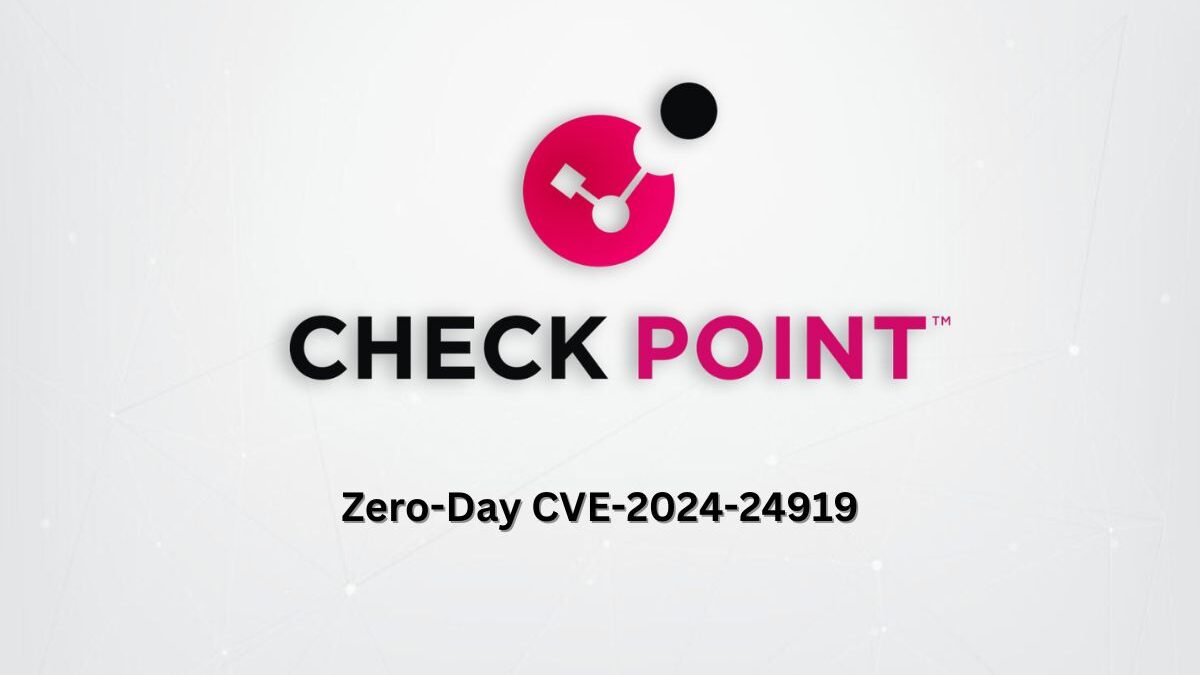Check Point VPN systems are currently facing zero-day vulnerabilities, with Check Point, a well-known cybersecurity vendor, being the focal point. The recent disclosure by Check Point regarding a critical zero-day vulnerability in its VPN products has caused a stir in the industry, highlighting threat actors’ persistent efforts to exploit weaknesses in network security infrastructure.
The zero-day vulnerability, known as CVE-2024-24919, poses a significant risk to organizations that depend on Check Point’s VPN solutions. This vulnerability allows unauthorized access to sensitive information on internet-connected gateways with remote access VPN or mobile access enabled. Its seriousness cannot be emphasized enough, as it offers a pathway for threat actors to breach corporate networks, potentially resulting in data breaches, lateral movement within networks, and other malicious activities.
The chain of events began with a surge in attacks targeting VPN devices, prompting Check Point to alert its customers on May 27, 2024. These attacks, which took advantage of outdated VPN local accounts with weak, password-only authentication methods, foreshadowed the discovery of the zero-day vulnerability. Check Point’s subsequent identification of CVE-2024-24919 as the underlying issue shed light on the magnitude of the threat faced by its customers.
Several of Check Point’s flagship products, such as CloudGuard Network, Quantum Maestro, Quantum Scalable Chassis, Quantum Security Gateways, and Quantum Spark Appliances, are affected by this vulnerability. The impacted versions span a broad range of releases, from R80.20.x to R81.20.
WatchTower Labs, in its evaluation of the vulnerability, has uncovered that attackers have the potential to exploit CVE-2024-24919 in order to gain access to specific information on compromised gateways. This could potentially compromise password hashes and other sensitive data. The ability to access such information opens up the possibility of lateral movement within victim networks, which poses significant security risks. It is concerning to note that attackers have demonstrated their capability to extract Active Directory data and utilize tools like Visual Studio Code to tunnel malicious traffic, thereby exacerbating the potential impact of this vulnerability.
Check Point has responded swiftly and decisively to this crisis. The company has promptly released emergency patches for the affected products, equipping customers with the necessary tools to strengthen their defenses against exploitation. The deployment of hotfixes, which can be applied through the Security Gateway portal, is a crucial step in mitigating the risk associated with CVE-2024-24919. Furthermore, Check Point has provided guidance on enhancing security measures, including the importance of updating Active Directory passwords and implementing remote access validation scripts.
The exploitation of this zero-day vulnerability serves as a stark reminder of the constant threat posed by determined adversaries. It emphasizes the critical significance of robust security practices and timely updates in safeguarding network infrastructure against evolving threats. Organizations must remain vigilant, taking proactive measures to address vulnerabilities and fortify their defenses against the advances of threat actors.
In conclusion, Check Point’s disclosure of the zero-day vulnerability in its VPN systems serves as a wake-up call for the cybersecurity community. By promptly addressing vulnerabilities and adopting proactive security measures, organizations can strengthen their resilience against emerging threats, effectively protecting their networks and data from exploitation.
sharanukalyan
Related posts
Categories
- Blog (9)
- Chrome (2)
- cisco (1)
- Cloud security (1)
- Crypto Scam (1)
- Cryptocurrency (2)
- Cryptojacking (1)
- CVE (20)
- Cyber News (9)
- cyber security (2)
- Data breaches (1)
- Email security (1)
- Email spoofing (1)
- Fashion (1)
- Guide (1)
- malware (1)
- Malware attack (1)
- Mandiant (1)
- News (15)
- OpenSSH (1)
- Password attack (1)
- Patch (6)
- Payment Security (1)
- phishing (1)
- ransomware (2)
- RCE (9)
- SMTP Smuggling (1)
- SQL injection attack (1)
- XSS attacks (2)
- zeroday (9)

